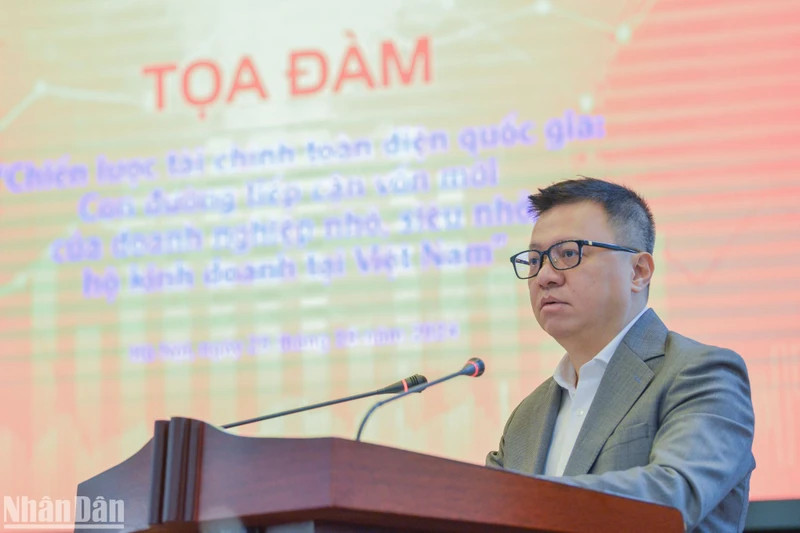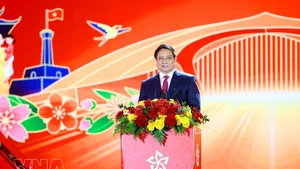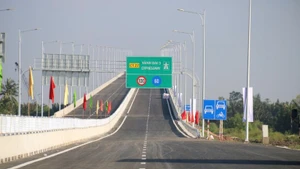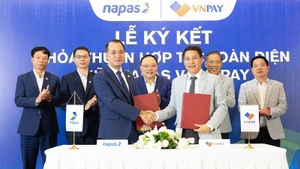The event was held jointly by Nhan Dan Weekend under Nhan Dan Newspaper and the Institute of Digital Economy Development Strategy (IDS).
In his opening speech, Member of the Party Central Committee (PCC), Editor-in-Chief of Nhan Dan (People) Newspaper, Deputy Head of the PCC Commission for Communication and Education, and Chairman of the Vietnam Journalists’ Association Le Quoc Minh, said that the formation of financial inclusion to ensure fairness for all people to access and use financial services at reasonable, convenient, responsible and sustainable costs is a trend in the second and third decades of the 21st century. Vietnam is not outside the world trend as the Government has soon cooperated with the World Bank (WB) to build a national strategy on financial inclusion.
Vietnam is also one of the 25 priority countries focusing on developing inclusive finance in the Universal Financial Access Initiative by 2020. On January 22, 2020, the Prime Minister issued Decision No.149/QD-TTg, approving the National Financial Inclusion Strategy to 2025 and Vision to 2030 (Strategy). The Strategy sets the overall goal of maximising the number of people who have access to and safely use appropriate, affordable, responsible and sustainable financial products and services provided by legitimate organisations.
Dr Pham Minh Tu, Deputy Director of the Banking Strategy Institute under the State Bank of Vietnam, emphasised that financial inclusion plays an important role in poverty reduction, increasing livelihoods and promoting sustainable growth. Promoting the application of digital technology in financial services will be a lever to expand financial services to people living in hard-to-reach areas while minimising costs and creating flexible, easy-to-use financial products.
The results of the first study, organised in July 2024, the IDS analysed the current situation of financial inclusion in Vietnam after nearly five years of implementing the Strategy. Accordingly, thanks to the rapid growth in the service channels and the speed of digital transformation, the rate of adults accessing modern financial services has increased.
IDS research shows that the biggest barrier today lies in the legal framework for businesses applying technology to financial services (fintech). This group possesses great potential for development thanks to advantages in technology, data, operating costs, business opportunities, etc., which are the driving force for implementing the national financial inclusion strategy.
















